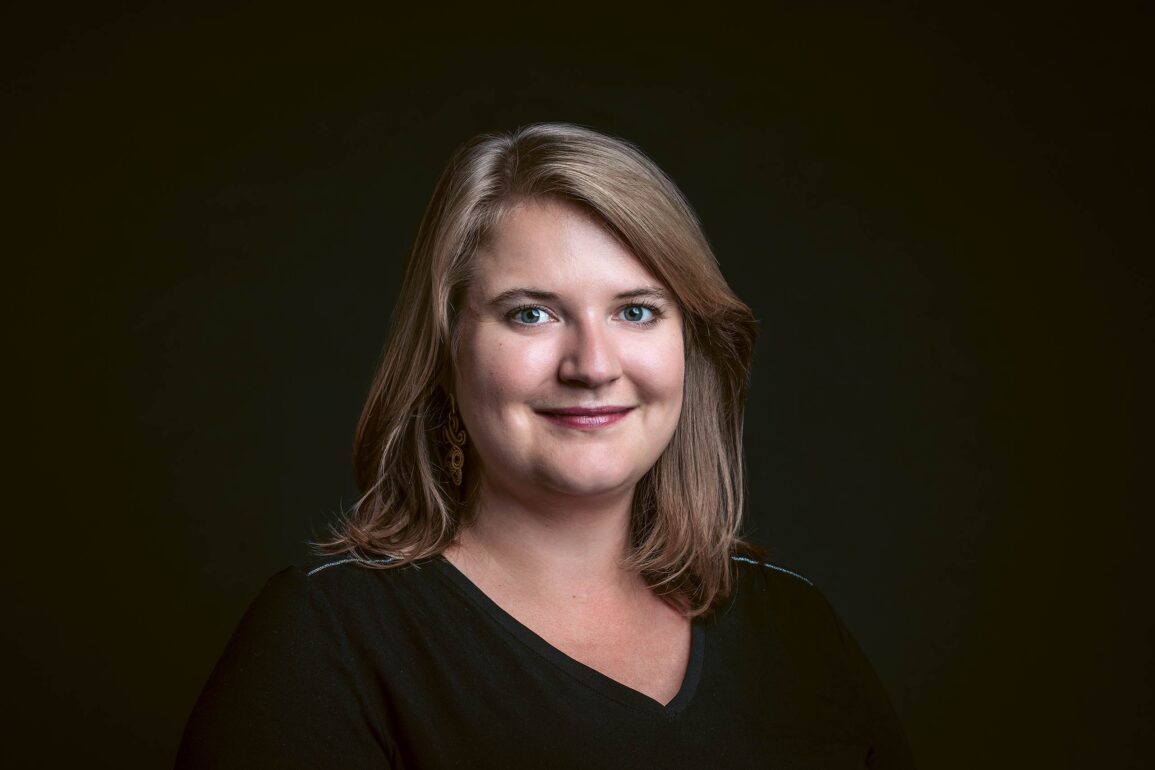Aline Freiburghaus became head of the SwissFoundations office in the French-speaking part of Switzerland last June. Directed towards the charitable sector by a fortunate set of circumstances, she is particularly impressed by the speed with which charities are able to react to social issues.
SwissFoundations – the umbrella organisation for charitable foundations in Switzerland – is celebrating its 20th anniversary this year. What plans are there to mark the occasion?
It’s an unusual year. We’re facing a lot of uncertainty, but we have a young, responsive team. We will be publishing the fourth edition of the Swiss Foundation Code, our symposium will take place on 1 and 2 June, and we will continue to develop projects for and with our members as part of the #FoundationForFuture concept.
You have been head of the SwissFoundations office in French-speaking Switzerland since June 2020. Does the charity landscape in that part of the country differ from that of German-speaking Switzerland?
There is no major divide between Eastern and Western Switzerland within the charity sector. That being said, there are regional differences, of course – Basel and Zurich have different cultural backgrounds, for example. But these differences don’t hinder our ability to work together. Charities collaborate on key topics. This has been proven during the current public-health crisis.
What is special about the charity sector in Geneva?
Its international influence, I would say. Geneva has historically been a birthplace of charitable endeavours, with institutions like the International Committee of the Red Cross, which was founded in 1863. The charity sector in the Lake Geneva region is very dynamic and internationally oriented.
Does its proximity to France have a strong influence?
The Geneva spirit and the major international organisations have more of an impact on the sector than its French ties. The tradition of the protestant families on the banks of the lake means they have always been heavily involved in promoting the common good through important charitable work, dedicating a significant portion of their family wealth to philanthropic activities. It is also worth remembering that each charity was founded by an individual philanthropist. They have each left their own personal mark on their charity, making it unique within its sphere. There may be regional cultural trends, but each charity has its own identity.
What role do the authorities play in Geneva?
The Lake Geneva region has a very dynamic charitable sector, and the authorities help it flourish. They are in constant dialogue with the charities and make sure the conditions are right for them to be able to develop in a positive way. Since 2013, SwissFoundations and the State of Geneva have enjoyed a working relationship built on mutual trust that has proved to be extremely valuable. It has benefited the wider public, too.
How do charities positively impact society?
Venture Kick is a good example. It is a charitable initiative founded in 2007 by a private consortium. It aims to build bridges between science and entrepreneurship by supporting high-impact start-ups. Numerous foundations from different regions, such as the Gebert Rüf Stiftung and Fondation ProTechno, collaborate within the consortium to create more leverage. This means scientific advancements can be transferred into the business world very quickly, which, in turn, benefits wider society.
Profile
Aline Freiburghaus became head of the SwissFoundations office in the French-speaking part of Switzerland in June 2020. Along with Katharina Guggi and Montserrat Bellprat, she took on the operational management of SwissFoundations ad interim at the start of 2021, and will continue in this role until the position is permanently filled. Aline Freiburghaus started at SwissFoundations as a project manager, a post she held from 2015 to 2019. She has two master’s degrees – one in political science and the other in environmental science – from the University of Geneva.
Photo: Kostas Maros
What are the main concerns and challenges for SwissFoundations right now?
SwissFoundations was founded in order to help organisations in the charitable sector share experiences and become more professional. Transparency, collaboration, impact and training are the key focus areas for developing the sector. As an active network dedicated to innovation, we also follow political and social developments closely, such as the Sustainable Development Goals (SDGs) and digitalisation.
The charitable sector is lagging behind when it comes to gender equality.
This is also a topic we address at our events. Charities are an integral part of civil society. Studies carried out by the Center for Philanthropy Studies at the University of Basel and the Centre for Philanthropy at the University of Geneva show that the charitable sector still has a lot of work to do when it comes to diversity. Women make up less than a third of the members of boards of trustees. We don’t want to reduce this topic solely to the question of gender, however. When it comes to diversity, things like age and social background are also factors. We need to take action in these areas. The charitable sector is evolving, however, and a new and dynamic generation is emerging.
Women are well represented at SwissFoundations. Is this the result of a deliberate strategy?
SwissFoundations hasn’t explicitly sought to hire women. Expertise has always been the deciding factor in driving professionalism within the sector and becoming more innovative. The fact that our office is currently made up exclusively of women, and that our executive board has a lot of women on it, is a reflection of SwissFoundations’ awareness of the topic. Above all, our organisation hasn’t put obstacles in the way that prevent women from occupying top positions.
Is it difficult to find volunteers to fill certain positions on boards of trustees? How can you encourage diversity in this context?
Remuneration for board members is a key issue if you want to find capable people with the time and motivation to get involved. It’s hard to undertake unpaid work, especially for people who may be in a less privileged financial position. Of course, members of boards of trustees can’t be offered sizeable remuneration, either, owing to the charitable nature of their work. However, appropriate compensation would simplify the process of appointing new board members and facilitate the integration of minority groups that are currently under-represented, or not represented at all.
Should the charity sector be playing a pioneering role in the area of gender equality, or should businesses be paving the way?
I think the silo mentality is out of date. We need to start thinking more in terms of ecosystems and collaboration. Business obviously plays an important role. The charitable sector has a lot fewer resources at its disposal by comparison. On the other hand, charities are able to react very quickly and make large sums available in a short amount of time. They are also not bound by the need to make a profit; they can take risks and occupy niches that are more difficult for businesses to engage with. This is one of the huge advantages of charities.
Are these the kinds of opportunities that motivated you to enter the charitable sector?
I completed interdisciplinary studies in environmental and political science, and am delighted to be able to put them into practice in my work for SwissFoundations. But the fact that I ended up in the charitable sector was more the result of a fortunate set of circumstances.
You started at SwissFoundations as a project manager. What made a particular impression on you?
What motivates me is working for the common good and being able to contribute to a better society. When I first joined SwissFoundations in 2016, I had the opportunity to work with a group of charities in the French-speaking region that were supporting unaccompanied child refugees. At the time, there was a huge number of refugees fleeing to Europe from Syria and Eritrea, and their needs were urgent. Nine charities raised half a million francs in two weeks. They were able to help unaccompanied minors when the government did not yet have the means to do so. I was impressed by how quickly these charities worked together and by the relevance of what they were doing.
Was this speed unusual or is it characteristic of the sector?
It’s one of the strengths of the sector. Charities are able to act very fast. Most importantly, they are also able to anticipate future needs. They are not subject to the same economic constraints as companies. Charities are able to observe the situation and be proactive when complex problems emerge.

‘When it comes to diversity, things like age and social background are also factors..’
Aline Freiburghaus
You travelled through South America last winter. Did you discover any interesting charitable projects out there?
It wasn’t a work trip. But I was nevertheless impressed by various different initiatives I encountered, particularly as I was travelling through the Antarctic. Charities are funding research by the Swiss Polar Institute, which is dedicated to helping conserve the poles and their incredible biodiversity.
You studied environmental science. In your view, what role do charities play in tackling the climate crisis?
In order to play a central role, charities need to address cross-cutting issues. The climate crisis is the sum of many parts. For a long time it was reduced to its environmental aspects, but we now know that it also has an impact on health, the economy and society. Charities need to work together and think in terms of ecosystems in order to increase their impact. This also applies to other cross-cutting developments, such as digital transformation.
Where do you see the sector in terms of digitalisation?
The sector is fairly traditional, and charities are not typically the most ‘digital’ environments – although some large-scale organisations, like Mercator and Fondation Lombard Odier, are pioneers in this area. But the sector is changing. SwissFoundations is active in this area. We also want to improve the visibility of the sector in digital media.
When you took up your role last June, digitalisation must have been a key part of your work?
We were able to do most things online, and our webinars in response to the COVID-19 emergency were a success. Of course, it’s easier to make a personal connection when you meet someone face to face. On the other hand, online solutions do make it easier to collaborate with people in different geographical locations.
Charities and NGOs are currently coming under fire for their engagement in political topics. How do you see the role of charities in this regard?
Any activity that has an impact on society has a political dimension. Charities are an active part of civil society. They can play a stabilising role, an anticipatory role and act as an initiator of change, all at the same time. Our members do incredible work in this context, which I think deserves to be recognised.


